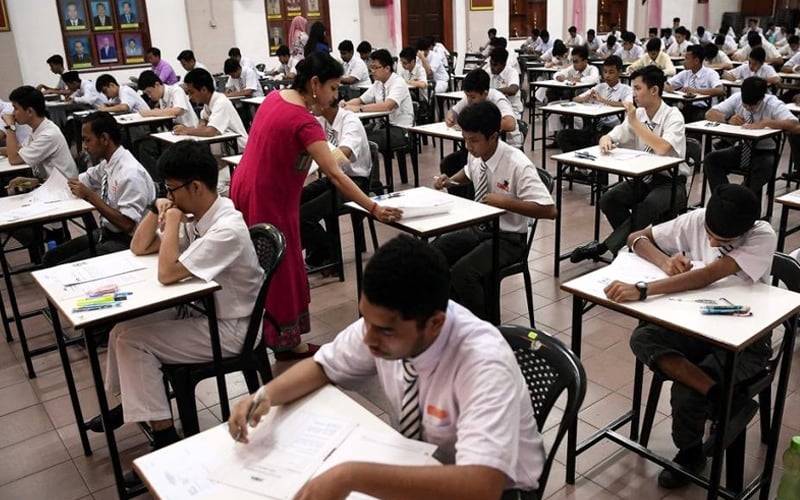
PETALING JAYA: A union representing teachers has questioned the education ministry’s data regarding the number of absent candidates in the 2022 Sijil Pelajaran Malaysia (SPM) exam.
National Union of Teaching Profession secretary-general Fouzi Singon said the ministry’s figures were “sensationalised” and missed out key reasons why candidates failed to sit for the exam.
“The ministry’s data does not take into account the actual cause of absenteeism, such as illness, dropping out of school, private candidates, or financial factors affecting students from poor families,” he said.
He was commenting on a statement by education minister Fadhlina Sidek last week that 10,000 students, out of the 30,000 candidates who did not sit for the 2022 SPM exam, had registered to take the exam this year.
According to Fouzi, cases of exam absenteeism only averaged around five students per school, adding that this should not ring alarm bells as it was considered normal.
“What is more worrying are cases of those who drop out because they failed to master the basic skills (of reading, writing and mathematics) in primary school and students who do not want to continue their studies to the tertiary level,” he said.
Fouzi said the focus should be on helping students master basic skills and convincing those who had opted not to continue with tertiary education to change their minds.
Separately, Teo Ming Yen of NGO Teach for Malaysia praised Fadhlina’s effort to tackle exam absenteeism, but said the government needed to probe the actual cause of the problem.
“I would like to applaud the minister for tracking down and getting these students to attend the exam,” she said. “However, the government needs to focus on truly understanding the core problem.”
Learning disability
Meanwhile, Parent Action Group for Education Malaysia chairman Noor Azimah Abdul Rahim claimed that learning disabilities such as dyslexia were among the reasons students tended to disengage and eventually drop out of school.
Noor Azimah urged the government to initiate more efficient learning intervention initiatives to cater to students with learning disabilities.
“How many of these SPM students who do not want to pursue further education are actually dyslexic but undiagnosed?” she asked.
“It is time that we invest some resources into learning disability alleviation programmes for our children, which must include comprehensive assessment to ascertain the learning disabilities they may have.” - FMT



No comments:
Post a Comment
Note: Only a member of this blog may post a comment.